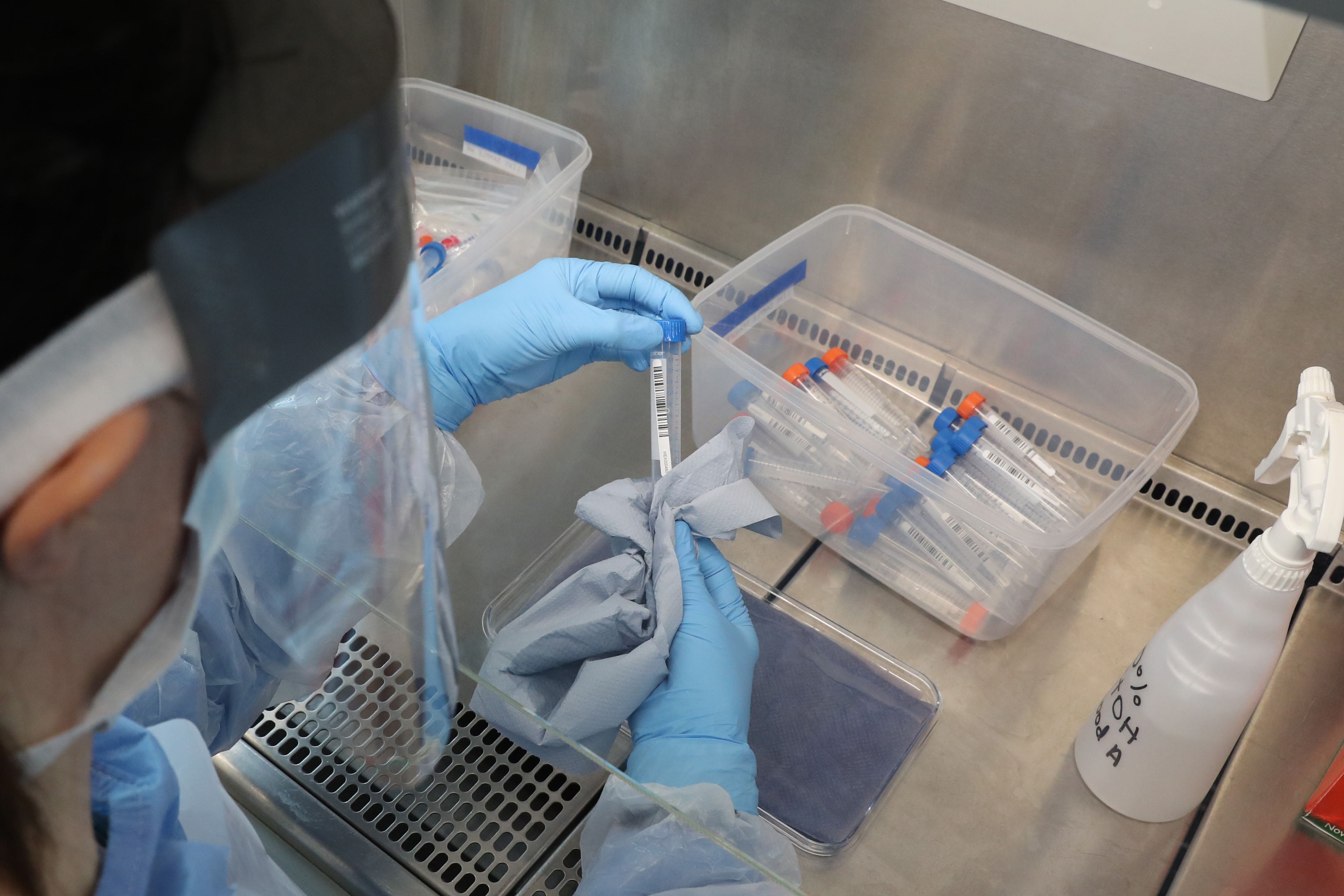Nearly a third with long Covid have had symptoms for two years, figures suggest
A total of 2.1 million people – around one in 30 – currently have symptoms.

Your support helps us to tell the story
From reproductive rights to climate change to Big Tech, The Independent is on the ground when the story is developing. Whether it's investigating the financials of Elon Musk's pro-Trump PAC or producing our latest documentary, 'The A Word', which shines a light on the American women fighting for reproductive rights, we know how important it is to parse out the facts from the messaging.
At such a critical moment in US history, we need reporters on the ground. Your donation allows us to keep sending journalists to speak to both sides of the story.
The Independent is trusted by Americans across the entire political spectrum. And unlike many other quality news outlets, we choose not to lock Americans out of our reporting and analysis with paywalls. We believe quality journalism should be available to everyone, paid for by those who can afford it.
Your support makes all the difference.Nearly a third of people with long Covid in the UK are likely to have been suffering the symptoms for two years or more, figures suggest.
Some 645,000 of those with long Covid are estimated to have first tested positive for the virus at least 24 months ago.
This is 30% of everyone likely to have the symptoms at the start of December, according to new figures from the Office for National Statistics (ONS).
The figure is up from 594,000, or 27% of the total, in November.
Overall, some 2.1 million people living in private households in the UK were estimated to have long Covid last month.
This is the equivalent of around one in 30 of the population.
Some 1.9 million, or one in 35 people, first had – or suspected they had – Covid-19 at least 12 weeks previously, while 1.2 million, or around one in 55, first had the virus a year ago.
The estimates are based on self-reported long Covid from a representative sample of people in the four weeks to December 4.
The overall number of people with long Covid is broadly unchanged on the previous survey for the period to November 6.
But the number who are likely to have had symptoms for at least two years has been on an upwards trend for several months.
A report published in December by the House of Lords Economic Affairs Committee said it was “unclear” what impact long Covid might be having on the growing number of economically inactive people in the UK – those not in work or looking for work – and recommended further study be carried out to understand the impact of long-term sickness on employment levels.
Prevalence of long Covid continues to vary among age groups and occupations.
An estimated 5.1% (around one in 20) of 50 to 69-year-olds are currently likely to be suffering from long Covid, compared with 4.7% of 35 to 49-year-olds, 2.9% of 25 to 34-year-olds, 2.8% of people aged 70 and over and 2.1% of 17 to 24-year-olds.
People working in social care reported the highest prevalence of long Covid among employment groups (6.1%), followed by health care employees (5.1%) and civil servants and local government staff (also 5.1%).
Levels were lower among occupations such as food production and farming (2.6%), financial services (3.1%) and hospitality (3.2%).
Long Covid is likely to be adversely affecting the day-to-day activities of 1.6 million people – 76% of those with self-reported long Covid – with 389,000 saying their ability to undertake day-to-day activities has been “limited a lot”, the ONS found.
Fatigue is the most common symptom (experienced by 71% of those with long Covid), followed by difficulty concentrating (49%), shortness of breath (47%) and muscle ache (46%).
There is no standard measure for long Covid, with the ONS using a definition based on symptoms that have persisted for more than four weeks after a first suspected coronavirus infection, where the symptoms could not be explained by something else.